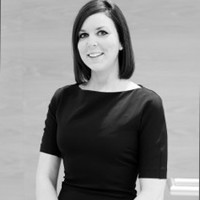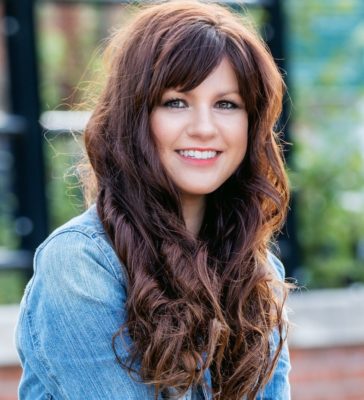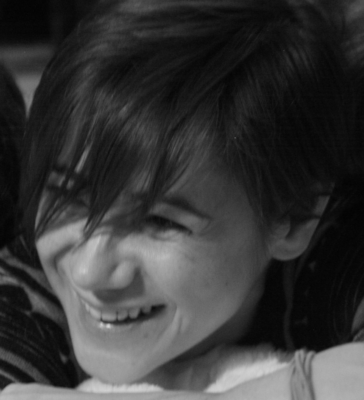
Katie Baker
Current Employer/Organisation Name
Springer Nature
What have you been doing since leaving Exeter, and what are you doing now?
Since leaving Exeter University back in January 2010 (I couldn’t tear myself away immediately after I graduated) I have taken on a variety of roles that have both supported and changed my career path, as well as doing a few little bits here and there for me! Most people when I graduated first with my BA in English Literature and then with my MA in English Literature used to delight in singing the song to me from Avenue Q – “What do you do with a BA in English!” – well first you go and work for the Royal Clarence whilst you get your head together about leaving University, then you go and take on several research positions, then you go and help set up a financial magazine and website, then you get headhunted for a communications role for a financial PR firm and start your love hate relationship with the City. The from there you firm up your ideas about the skills set you want to use and the industry you want to be in. From there I worked really hard to make my break into publishing, combining my love for research and community engagement with my skills in people management, communication and my developing roles in public affairs. I got my break in publishing with academic publisher SAGE where i spent 8 happy years building the communications team and developing their public affairs arm working closely with Government bodies to support awareness of and better engagement with evidence based research and then from there I was head hunted again to move over to Springer Nature and take on my current role as Head of Communications for Publishing and Research Services – a role that I am rapidly getting my teeth around. In between that I have perfected my role as Bridesmaid/ Maid of honor (8 times now) and have done a lot of European travel as well as setting myself up with a new challenge to complete each year.
Why did you choose this career? And what do you enjoy most about your work?
I was never 100% sure about what I wanted to do – all I knew was that I was active, a people person and loved being involved in things that could make a difference. When i left University and started working, it became clear to me that I was a good communicator, so I thought why not combine that with my interest in research. So that is what I did – take up a communications role in publishing. I love being at the forefront of research communication – being able to work first hand with leading researchers and getting their work out as well as working with the core stakeholders who can make that happen. Presenting in parliament as part of working groups (and getting mentions in PM’s Question Time), looking at the challenges around research funding, communication, engagement, never fails to loose its shine. I enjoy being able to support a fundamental part of our society, and when we have supported the communication of projects or research that have real world impact – such as providing global medical practitioners with the most up-to-date research on Ebola for example, which conversely helped the development of its management on the hospital camps in West Africa, you see how vital some of the communication we do is. Its present, its live work, its impactful and my role gets to play a small part in all of that.
Please tell us if you were a member of any societies, groups or sports clubs?
I spent just over four years at Exeter, I was President of Holland Hall in 2005, was part of the Exeter Ambassador scheme as well as being a member of many of the fitness societies.
What did you enjoy most about your programme and what was the biggest highlight?
The lecturers. I was attracted to the content of the courses but when I arrived and met the lecturers, they were the ones who brought it to life. Their passion, their engagement and the creativity in which they taught – to have that was second to none. It was what inspired me to go on and do my masters – to continue to have the opportunity to work with and learn from such an engaged and passionate group of professionals. Biggest highlight was probably being involved in a research day on Mary Wollstonecraft and preparing a paper, with other students, to present to some of the leading researchers in the sector. Terrifying but also an incredible opportunity to be able to be a part of such an influential and important research debate.
What did you enjoy most about studying here?
That’s a hard one to answer – Queen’s café, the lemmy ha! No – it was the atmosphere and the friends that I made, who I still see regularly 14 years later. Exeter was a fantastic University, its teaching excellence and research excellence alongside the campus, the location, the people you met – so many opportunities open to you and who wouldn’t want to be able to write half of their dissertation on a beach or on a little rowing boat doing the Topsham ten (not sure if that even exists anymore!)
Why did you choose to study at Exeter?
Why wouldn’t you! I was part of the old cohort who had the old campus with its rolling hills and crumbling Duryard. Exeter had a charm about it that no other university had for me – its location, the people, the atmosphere. I wouldn’t have chosen anywhere else. Plus I was extremely lucky that on top of that Exeter was one of the leading universities for my course and had some of the most inspiring and engaging lecturers – again a reason why I stayed to do my Masters there.
What skills and experiences have been most useful for your career?
Communications is very much a people based role and focused on relationship building. One of the key skills I have really relied on, across my roles, is the ability to build rapport with people. You have to be able to be cool under pressure and have the ability to think quickly and creatively around a problem. You have to have faith in your own abilities to do something but also be able to adapt to criticism, which you will get, and have the ability to be constructive and productive in such situations. Trust is central whether you take an in house or agency role – building relationships with people and being able to present yourself clearly are all key skills here. Everything from presenting at University, to managing and communicating large research projects in a logical, concise and accessible way, to managing the pressures and customers in a busy restaurant environment, to having to manage failed or convoluted travel has contributed towards the developments of these skills.
What advice would you give to a current student who wishes to pursue your career?
To be truly successful in communications, I believe you have to be passionate and care about the sector that you want to work in. Look around on recruiter sites and look at the types of roles available in each sector and help identify which ones you think would be of interest to you, choose your sector carefully – it doesn’t mean you have to stay there but it gives you a head start if you already believe in what you have to communicate. Communications isn’t the same as Ab Fab’s portrayal of it – really do your research into the industry and understand the skills sets, and hours, that are required. – speak to people already in the sector, we are always willing to talk! – research current roles out there and look at the skills required, what can you do now to start building these? – research communications membership bodies such as the CIPR and PRCA, there are some great resources on there that will help you to get a better understanding of the industry. – get out and talk. Network Network Network (see previous point)
What are your plans for the future?
I plan to continue to build my career in corporate communications – at present this is still very much in the publishing sector, as it is a sector I am passionate about. There are also plans in the pipeline to look at global transfers and the opportunity to work abroad and develop my communications skills globally.

